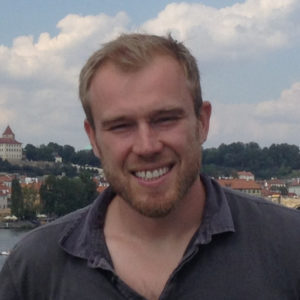Global Brain Singularity: Universal history, future evolution and humanity’s dialectical horizon
 We invite you to join us at the BCSSS, Paulanergasse 13, 1040 Vienna, on Tuesday September 25th, 2018 at 5pm (with a follow up conversation until 7pm) to meet with Cadell Last, PhD candidate at the Vrije Universiteit Brussel.
We invite you to join us at the BCSSS, Paulanergasse 13, 1040 Vienna, on Tuesday September 25th, 2018 at 5pm (with a follow up conversation until 7pm) to meet with Cadell Last, PhD candidate at the Vrije Universiteit Brussel.
If you can not attend his talk in Vienna, we also offer for the first time the opportunity to join via online in real time (5pm Vienna time). Just click on the link https://zoom.us/j/843700572 All you need is a webbrowser, a stable Internet connection and a webcam.
We met Cadell at the First Summer School of Thinking by the Montparnasse Initiative, which he co-initiated, and are excited that he will visit Vienna to give a talk on his PhD research:
Global Brain Singularity: Universal history, future evolution and humanity’s dialectical horizon.
His work under the supervision of Prof. Dr. Francis Heylighen attempts to approach an understanding of global brain singularity through a logical meditation on temporal dynamics of universal process. Here global brain singularity is conceived of as a future metasystem transition mediated by psychosocial and technological mechanisms towards a higher qualitative level of existence. In order to better understand this phenomenon he starts with an overview of universal history with the tools of big history and cosmic evolution, which situate humans in relation to a material complexification from big bang to global civilization. From this exploration he then focuses precisely on the complex dynamics of the human system as it has evolved from local hunter-gatherer bands to a global interconnected network of nation-states and international organizations. In light of this analysis he attempts to theoretically mediate global civilization with new concepts relevant to the future of politics, economics and psychosocial life in general. He then analyzes humans as biocultural evolutionary agents of this future metasystem in order to understand the fundamentals of growth, reproduction and their possible transformations in a global brain. This analysis gives him the framework he needs to develop sophisticated speculations on the future of evolution into the deeper future. Finally, he leaves universal history and future evolution behind, bringing our attention back to the internal depths of the present moment. In this move he attempts to understand the structure of contemporary knowledge, introducing pathways that may be explored, and tools that may be utilized by human minds in order to make intelligent and reasonable interventions in universal process.
We are looking forward to meet you in Vienna or online for a promising contribution of a bright young researcher.
Link to his PhD thesis (full text): Global Brain Singularity: Universal history, future evolution and humanity’s dialectical horizon
Tags In
Subscribe to our Systems Newsletter
Recent News
- Keynote at the invitation of CIRCULAR4.0 “The European Green Deal – Economic Potential for SMEs”
- Keynote address at the invitation of Energie Steiermark “Potentials of the Circular Economy”
- Expert interview with Circular Business Academy (CBA), Slovenia on the innovation potential of the circular economy for SMEs
- UNIDO: Global consultations on circular economy
- Mission Innovation Austria 2021: A platform for all drivers and shapers of innovation and the energy system of the future
